
Flora MacDonald is best known for helping Charles Edward Stuart evade government troops after the Battle of Culloden in April 1746. Her family had generally backed the government during the 1745 Rising, and MacDonald later claimed to have assisted Charles out of sympathy for his situation.

Sorley MacLean was a Scottish Gaelic poet, described by the Scottish Poetry Library as "one of the major Scottish poets of the modern era" because of his "mastery of his chosen medium and his engagement with the European poetic tradition and European politics". Nobel Prize Laureate Seamus Heaney credited MacLean with saving Scottish Gaelic poetry.

John Maclean was a Scottish schoolteacher and revolutionary socialist of the Red Clydeside era. He was notable for his outspoken opposition to World War I, which caused his arrest under the Defence of the Realm Act and loss of his teaching post, after which he became a full-time Marxist lecturer and organiser. In April 1918 he was arrested for sedition, and his 75-minute speech from the dock became a celebrated text for Scottish left-wingers. He was sentenced to five years' penal servitude, but was released after the November armistice.

Siol nan Gaidheal is a minor Scottish ultranationalist and ethnic nationalist group which describes itself as a "cultural and fraternal organisation".
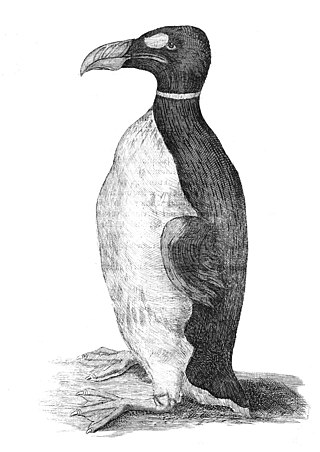
The boobrie is a mythological shapeshifting entity inhabiting the lochs of the west coast of Scotland. It commonly adopts the appearance of a gigantic water bird resembling a cormorant or great northern diver, but it can also materialise in the form of various other mythological creatures such as a water bull.
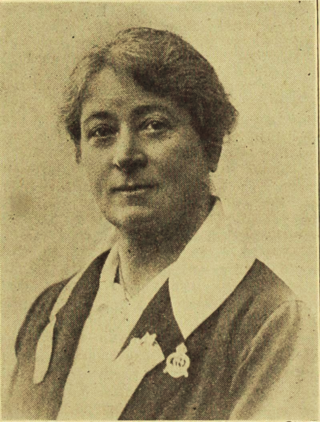
MacLeod, McLeod and Macleod are surnames in the English language. The names are anglicised forms of the Scottish Gaelic MacLeòid, meaning "son of Leòd", derived from the Old Norse Liótr ("ugly").

Scottish nationalism promotes the idea that the Scottish people form a cohesive nation and national identity.

The Royal National Mòd is an Eisteddfod-inspired international Celtic festival focusing upon Scottish Gaelic literature, traditional music, and culture which is held annually in Scotland. It is the largest of several major Scottish Mòds and is often referred to simply as the Mòd.
The Scottish Renaissance was a mainly literary movement of the early to mid-20th century that can be seen as the Scottish version of modernism. It is sometimes referred to as the Scottish literary renaissance, although its influence went beyond literature into music, visual arts, and politics. The writers and artists of the Scottish Renaissance displayed a profound interest in both modern philosophy and technology, as well as incorporating folk influences, and a strong concern for the fate of Scotland's declining languages.
Norman MacLeod, known in Gaelic as Caraid nan Gàidheal, was a Church of Scotland minister, poet, and writer. He was Chaplain to Queen Victoria and Dean of the Chapel Royal in Scotland.

BBC Radio nan Gàidheal is a Scottish Gaelic language radio station owned and operated by BBC Scotland, a division of the BBC. The station was launched in 1985 and broadcasts Gaelic-language programming with the simulcast of BBC Radio Scotland. Its headquarters is located on Seaforth Road, Stornoway along with BBC Alba and MG Alba.
Hugh Dan MacLennan is a Scottish broadcaster, author and sporting academic with specific interest in the sport of shinty. A fluent Gaelic speaker from Lochaber, he attended the University of Glasgow before going on to teach Gaelic in Millburn Academy, Inverness and then going to work with BBC Radio nan Gaidheal. He has been Secretary of the Gaelic Society of Inverness and both director and vice president of the Camanachd Association and was director of communications for Caledonian MacBrayne. In 1998 was awarded a PhD by the University of Aberdeen. McLennan is chief presenter and co-hosts the quiz show on Aibisidh on BBC Alba with Mary Anne McDonald. MacLennan has made several guest appearances on BBC Scotland programmes on life in the Scotland.
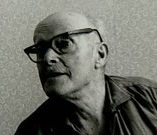
Murdo Macfarlane known as Bàrd Mhealboist was a published poet, songwriter and campaigner for Scottish Gaelic, especially during the 1970s, when the Ceartas movement was gaining strength.
John Lorne Campbell FRSE LLD OBE was a Scottish historian, farmer, environmentalist and folklorist, and recognized scholar of both Celtic studies and Scottish Gaelic literature.
Events from the year 1978 in Scotland.
The water bull, also known as tarbh-uisge in Scottish Gaelic, is a mythological Scottish creature similar to the Manx tarroo ushtey and the Irish tarbh-uisce. Generally regarded as a nocturnal resident of moorland lochs, it is usually more amiable than its equine counterpart the water horse, but has similar amphibious and shapeshifting abilities.
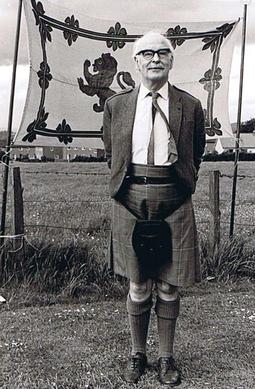
William Oliver Brown was a Scottish nationalist political activist.
The 1320 Club was a Scottish nationalist campaign group.
Major Frederick Alexander Colquhoun Boothby was a Scottish nationalist military and paramilitary leader.
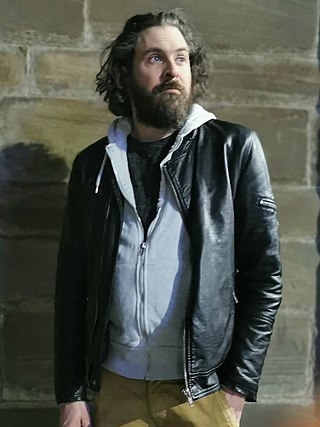
Marcas Mac an Tuairneir is an English writer and singer. He writes and publishes in Scottish Gaelic, English and Polari.












